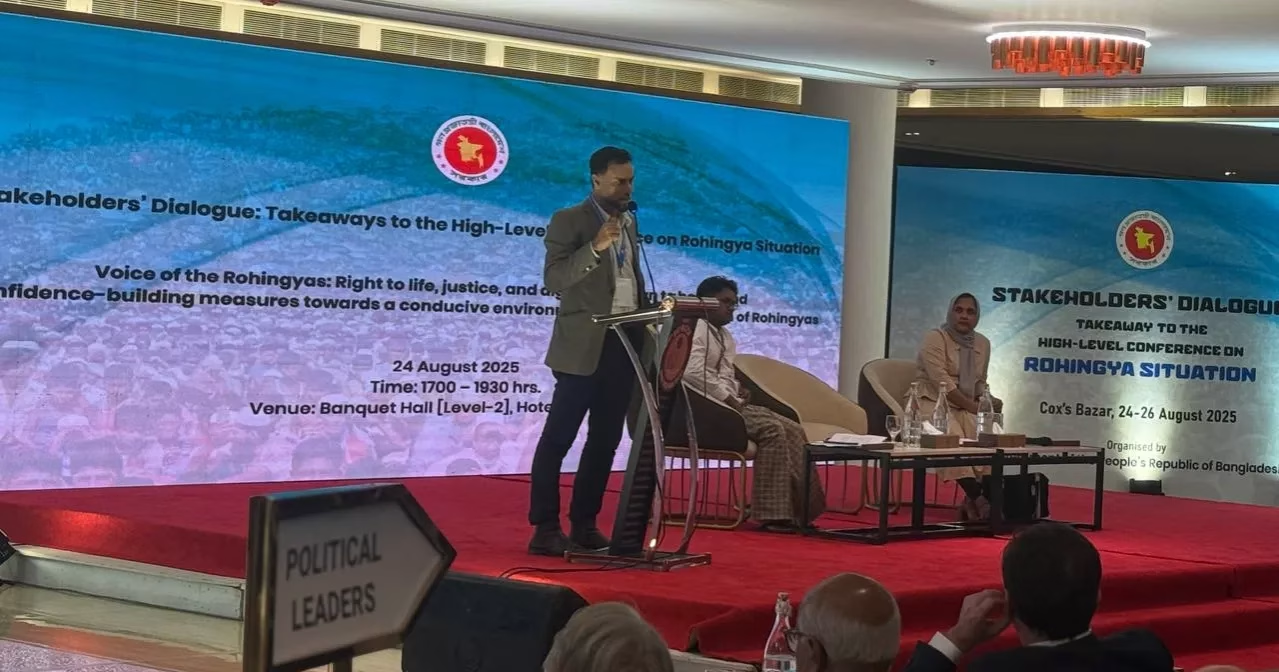Foreign Secretary Asad Alam Siam stated on Sunday that Bangladesh, alongside global partners, will emphasise the critical importance of sustained financial support for the Rohingya response. He warned that a three-day international gathering would draw attention to a deepening humanitarian emergency if adequate assistance is not secured.
“One of the aims of this three-day conference is to highlight the necessity of the funding,” Siam remarked in an interview.
The Foreign Secretary mentioned that authorities are engaging with all potential financiers and considering non-traditional avenues for support. “We are trying to explore whether there are any funding opportunities beyond the traditional sources,” he noted.
The three-day event, named “Stakeholders’ Dialogue: Takeaways to the High-Level Conference on Rohingya Situation”, commenced on Sunday afternoon in Cox’s Bazar. The interim government is actively collaborating with international actors to address the protracted Rohingya situation.
Foreign Secretary Siam mentioned that Chief Adviser Muhammad Yunus will open the conference’s primary session on Monday.
Attendees include Disaster Management and Relief Adviser Faruk E Azam, High Representative for the Rohingya Issue and National Security Adviser of Bangladesh Dr Khalilur Rahman, United Nations Resident Coordinator (ai) Rana Flowers, Head of the Independent Investigative Mechanism for Myanmar (IIMM) Nicholas Koumjian, UN Special Rapporteur on human rights in Myanmar Thomas H Andrews, and UNHCR Assistant High Commissioner Raouf Mazou.
When questioned about the likelihood of Rohingya repatriation to Myanmar, Siam indicated that diplomatic initiatives are ongoing, though progress is influenced by conditions within Myanmar.
The conference opened with a dedicated session involving Rohingya representatives, focusing on “Confidence-building measures towards a conducive environment for repatriation of Rohingyas”.
Siam confirmed that Rohingya frustrations, desires, and aspirations would be reflected in the conference’s final document, which will be presented at a high-level meeting during the UN General Assembly (UNGA) in New York on September 30.
Bangladesh, which shelters over 1.3 million Rohingyas in Cox’s Bazar and Bhasan Char, is developing a strategy for their secure and dignified repatriation.
The Ministry of Foreign Affairs noted that the dialogue intends to produce practical recommendations for the high-level conference scheduled in New York in September. This event serves as preparation for the high-level conference on the Rohingya situation set for September 30 in New York, coinciding with the United Nations General Assembly.
The Office of the High Representative for the Rohingya Issue and the Ministry of Foreign Affairs are coordinating the ‘Stakeholders’ Dialogue’ in Cox’s Bazar. Domestic and international experts, diplomats, Rohingya representatives, international organisations, and academics are participating in the dialogue. They are exchanging perspectives and will propose measures to tackle the Rohingya issue.
The views of Rohingya men, women, and youth will be prominently highlighted, offering the international community insight into their outlooks, hopes, and expectations.
UNHCR, the UN Refugee Agency, and humanitarian allies are scaling up efforts to assist up to 150,000 Rohingya refugees who have entered Cox’s Bazar, Bangladesh, in the past 18 months.
Targeted violence and persecution in Rakhine State, along with ongoing conflict in Myanmar, have driven thousands of Rohingya to seek safety in Bangladesh. This influx of Rohingya refugees into Bangladesh, occurring over several months, is the largest from Myanmar since 2017, when approximately 750,000 fled severe violence in Rakhine State.
Additional humanitarian aid is urgently needed, as new arrivals rely heavily on the solidarity of existing camp residents, stretching already scarce resources.


